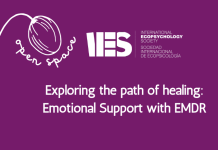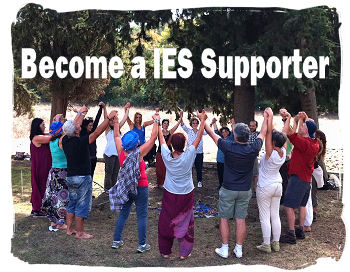In this article I will share the experience of the Therapeutic Family Gardens Program (HFT in spanish) developed by the CLANA Foundation (Camino de la Naturaleza) in alliance with Koru Transformación Ecopsichology Institute of Chile – Colombia and the NGO Buenos Vecinos. Families from the cities of Valparaíso and Santiago de Chile have participated in this program in the context of global sanitary confinement.
The program consists of a comprehensive accompaniment to install orchards in homes and communities, as a strategy to face the state of health crisis that affects children, families, schools and communities in our territories.
The objective of the program is to strengthen the state of health, the quality of life and the sense of community in the participating families.
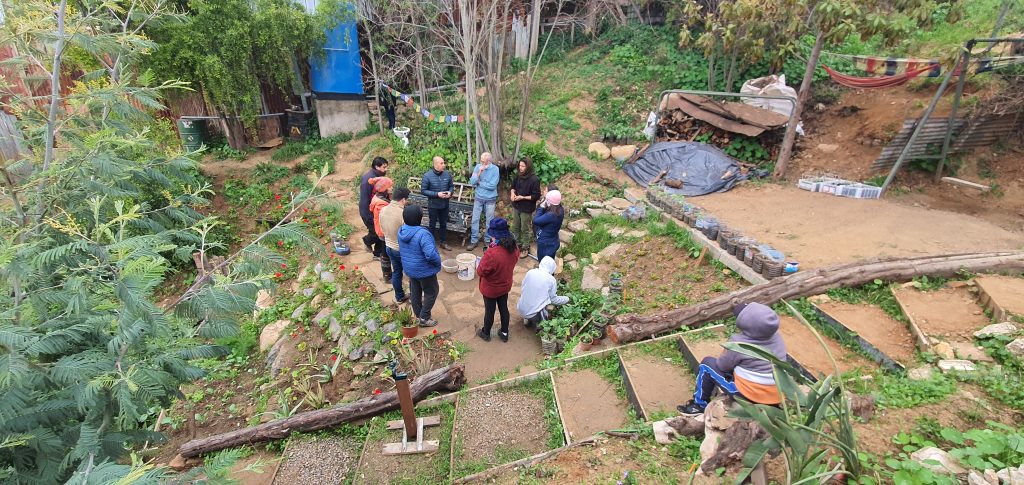
FOUNDATIONS
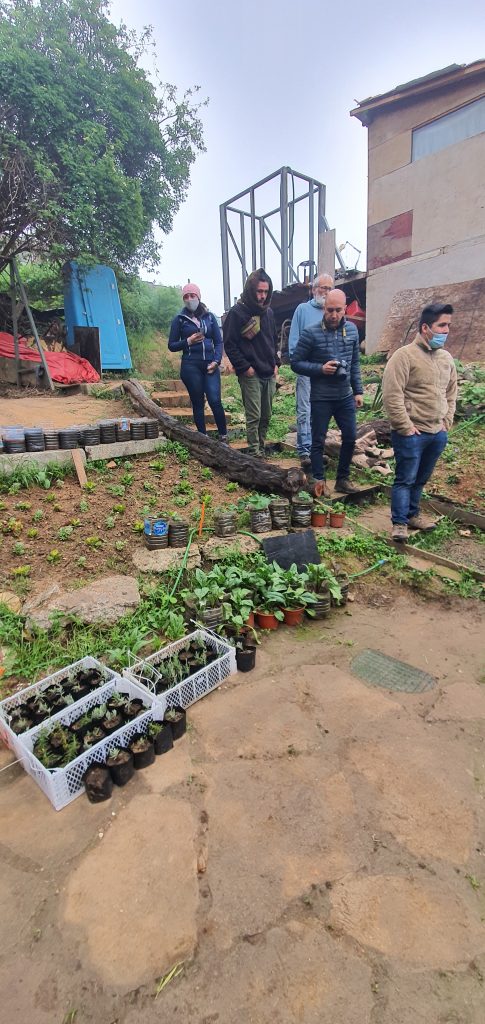
We are going through a critical moment in humanity history. After the global pandemic of COVID 19 there is an urgent need to rethink our lifestyles, looking for healthy ways that provide us a state of balance and a healthy ecosystem. In this search and in response to the emergency, my travel plans shifted from ecopsychology promotion work we did at Koru Transformación to local service in my beloved hometown of Valparaíso, Chile.
I like to let myself be carried away by synchronicities and offer my work to those who manage to see in the framework of ecopsychology a response to the healing needs of the present, since it deeply reconnects us with the psyche of the earth, in whose bosom the psyche of our species is housed, and the capacity for life and regeneration of our ecosystems.
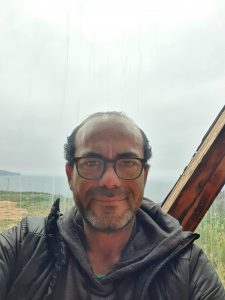
So, once I assumed that my stay in Valparaíso would be longer than expected, I concentrated on nurturing the roots that connect me to this land and committed to an adventure with the CLANA Foundation, and we began to dream of an absolutely emergent program, alive and transforming, that day by day continues to surprise us with the impact generated by this alliance of union between ecopsychology, agroecology and ancestral knowledge that inspires the project we have been building during these months.
A powerful team arised, full of enthusiasm, brotherhood, and I deeply appreciate the experience generated. We are three men in the heart of the team, Gabriel Bernal creator of the Clana Foundation, with a long career as a shamanic practitioner and connoisseur of the Muisca culture of Colombia; we also have the presence of Eder González specialist in agroecology and myself, contributing with my experience in the field of ecopsychology. Edilberto Mendoza from the Ingibia Foundation of Colombia also accompanied on line us almost permanently, guiding us with his wisdom and rich experience in environmental education, as well as several collaborators at different moments of the process such as Katherine Olivares, educator and director of Laguna Verde Forest School and Kenya Kalfhed, a psychology student.
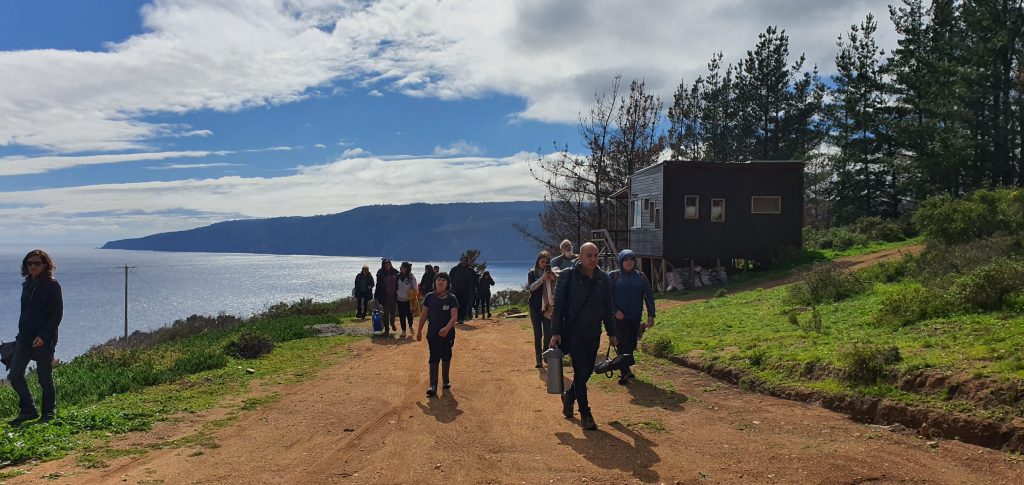
After the presentations have been made, let us analyze the context of the health crisis, which due to its global nature is expressed in fractal form by all the communities on the planet, but is especially critical in developing countries, where the levels of poverty and inequality have an impact on communities, experiencing states of vulnerability and uncertainty at work and health. Many families have had to find a way to meet their basic needs, and children and their families must adapt to conditions of confinement and social isolation.
In addition to the above, media exposure and social control cause states of stress and imbalance in the community, affecting their lifestyles and physical and mental health conditions. Naturally, all these conditions affect the human body and provoke responses of the immune system against environmental risks.
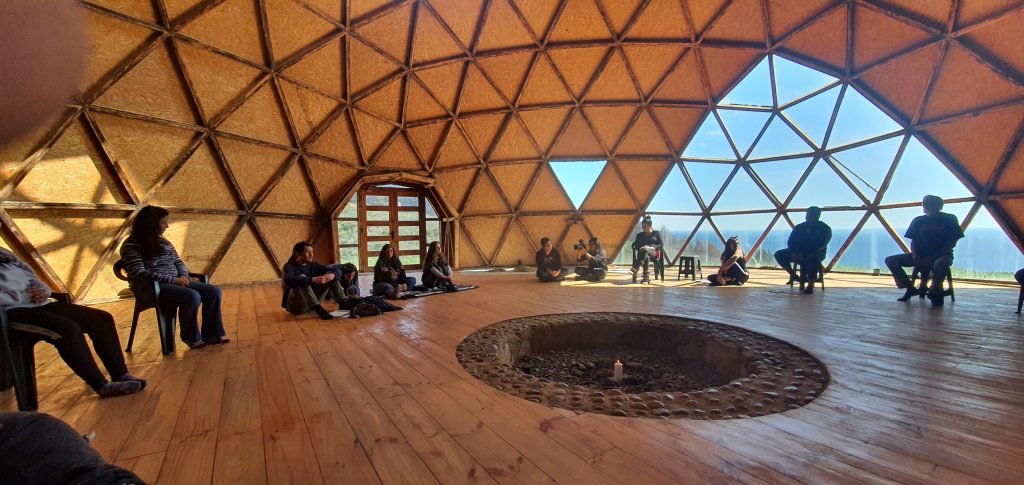
We propose that preventive, educational and therapeutic strategies in family health can facilitate the conditions to regain a state of harmony and balance with our living environments, and this includes nature.
Within ecopsychology we consider that the discomfort of our civilization responds ultimately to the perception of feeling separated from nature, and in this sense, ecopsychology seeks to develop the awareness of being part and expression of it.
The Therapeutic Garden.
To harmonize with the natural cycles it is necessary to remember the ancestral bond with the land and food. So we decided to join forces to highlight the healing power of the garden, understanding that when it comes to people and their love for nature, the relationship between human beings and nature is a very effective ecotherapy tool. Orchards and gardens are part of our immediate living space at home, but we do not always interact with them, nor do we understand their therapeutic potential as a source of well-being.
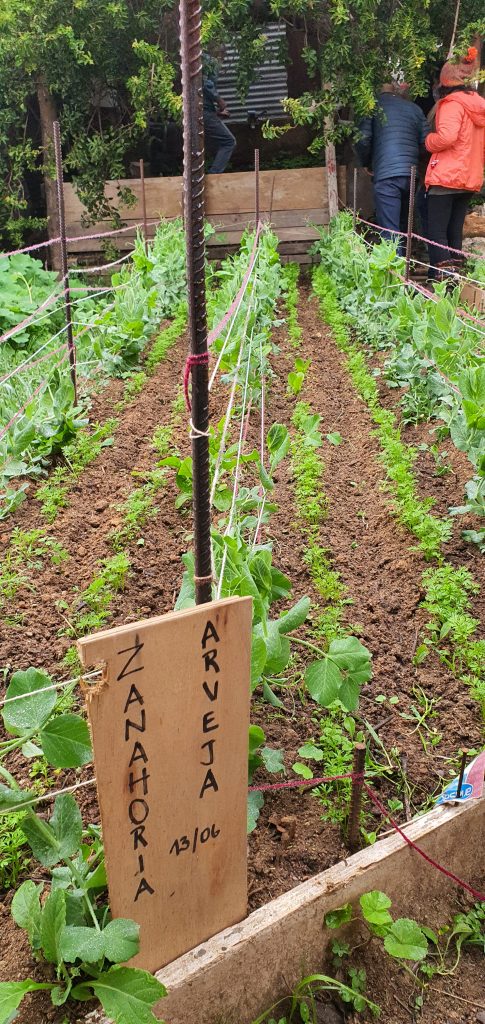
The garden as a therapeutic tool is also known as Horticultural Therapy, it is used in countries around the world obtaining great results in working with people with special needs. The initiatives have been carried out mainly in educational and cultural centers and hospitals under the supervision of professional therapists. But these benefits can also be used from the garden of a house.
The world of the garden in all its diversity brings the healing effects of nature into our home so that we can express ourselves from them in a creative way. Not in vain do they feed us and supply us with food products in an ecological way, they are multifunctional spaces.
They are therapeutic instruments that we can use with great success to support the cure of certain physical diseases and mental disorders; preserve our health and prevent diseases; encourage children to become adults without being far from nature, and provide our elders with an old age with a better quality of life
A Therapeutic Garden program is developed in a specific and individualized way, adapting to the needs of each person / family / community and allows us to generate various benefits, for example:
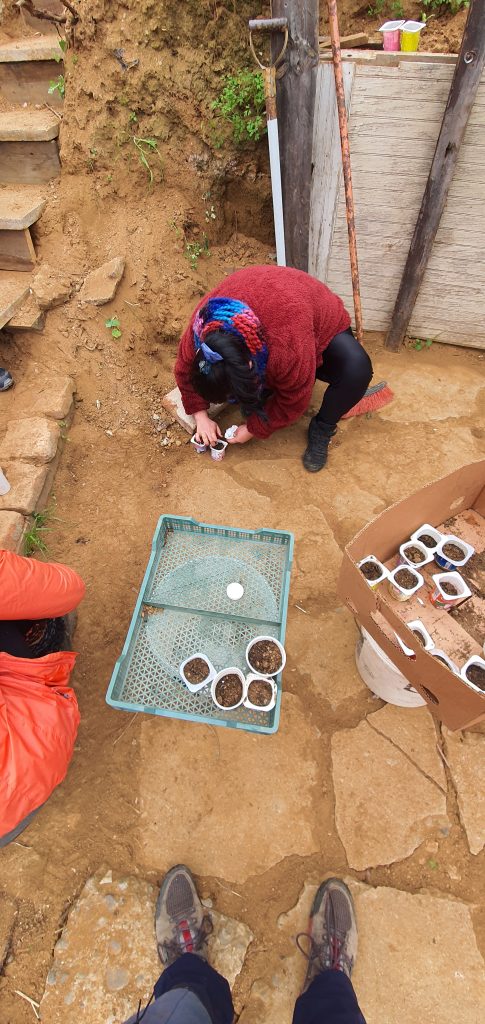
Cognitive benefits:
– Promotes design thinking and planning.
– It favors the analysis and decision-making of the ecosystem.
– Improves concentration and increases attention span.
– Produce a general increase in cognitive functioning.
– Development of creative capacity and aesthetic intelligence.
Psychological benefits:
– Improves mood.
– Relieves depression.
– Evidence of decreased anxiety and stress and conflict behaviors.
– Develops self-esteem, satisfaction and a feeling of achievement.
– Contributes to the management of frustration and anger, developing patience and responsibility.
– There is an increase in the feeling of well-being.
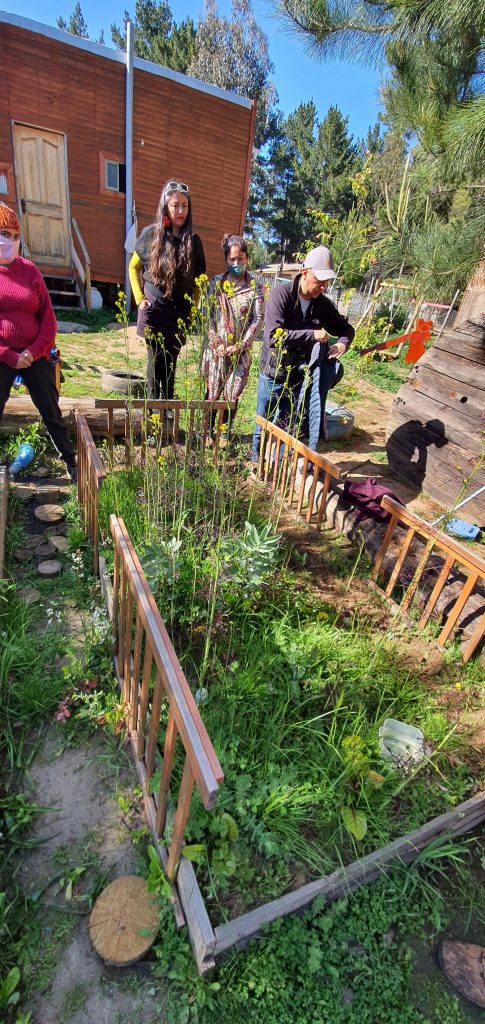
Physical benefits:
– Increases the immune response.
– Develops fine and gross motor skills and hand-eye coordination.
– Reduce blood pressure.
– Reduce the heart rate.
– It favors the increase of endorphins.
– There is a complete sensory stimulation (sight, hearing, touch, smell and taste).
– Acquisition of healthy eating habits and reduction of obesity.
– Cell oxygenation
Social benefits:
– Greater participation and social interaction, as well as relational self-esteem.
– Improved group cohesion.
– Stimulation of healthy patterns of social functioning.
– Purpose building, etc …
Let’s review below some concepts and approaches that support this proposal:
Salutogenesis
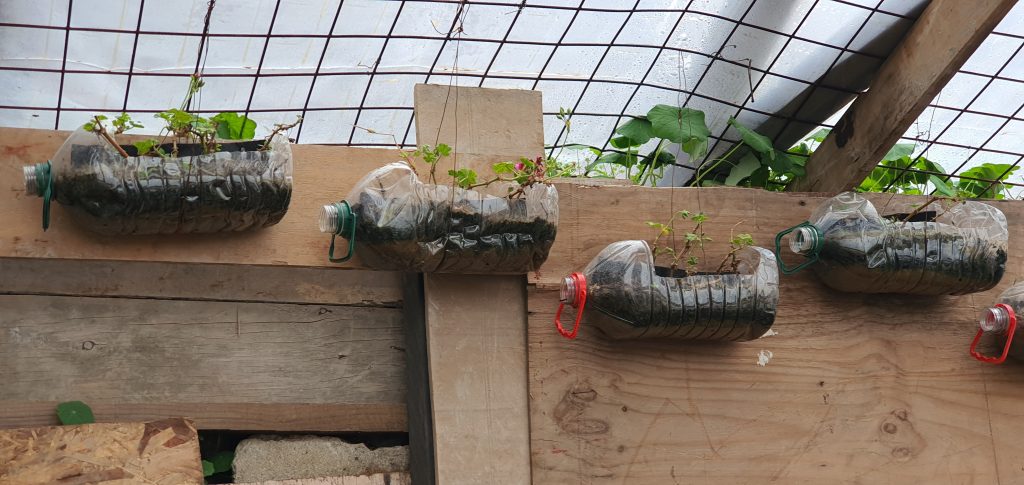
Salutogenesis, a term coined by the physician and sociologist Aaron Antonovsky in the last decades of the 20th century, means, in essence, the Genesis of Health. Salutogenesis brings in itself a new look, a new paradigm as far as health is concerned, and emerged as a contrast to what medicine had as a hegemonic vector during the last centuries: the search for disease, the origin of diseases: “Pathogenesis”. And while the pathogenic vision asks why we get sick, Salutogenesis asks how we can maintain health, or if there are sources of health in each individual.
According to the parameters of Salutogenesis, we should focus our gaze on people who have and maintain good immunity during a pandemic.
We grow up in a society that does not teach or instruct us in comprehensive self-care. We become dependent on other attentions and we hope that only “those who know” will give us options, advice, their energy! To heal our imbalances.
Echopsychosomatic
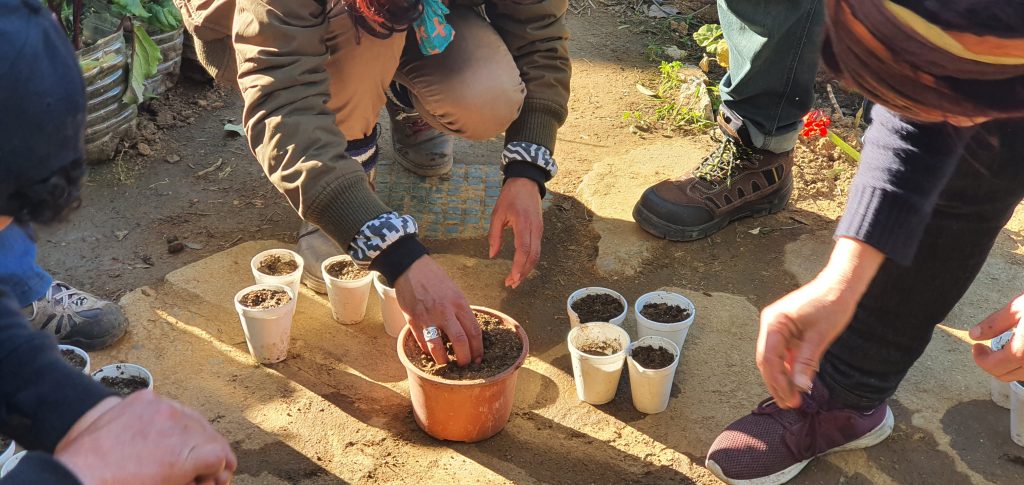
The alienation of nature is an important factor that influences the appearance of diseases and disorders, which would be explained in that a part of the person is cut off by being deprived of what it needs for the functioning of the body. The origin of many diseases is easier to understand when we not only deal with the negative influences that are seen, but also with those positive and necessary influences for life and inherent to nature that we lack.
Clemens G. Arvay (2016) proposes working on “ecopsychosomatics”, as a discipline that would recognize not only that the body and the psyche constitute a unit, but also that both maintain extremely complex relationships with respect to the environment and nature. Body, psyche and natural environment therefore compose a larger and more evolved unit and are also inextricably linked to each other, forming part of an echopsychosomatic system.
Some psychologists claim that working on self-esteem is delving into the self-system or motivation directed by the ego. From this perspective they propose to work on self-compassion, which implies deepening the ecosystem or a more prosocial motivation, not so much directed towards oneself.
The predominance of motivation by the ecosystem offers advantages, not only for the group but also for the individual, since it improves physical and psychological health. In addition, there is recent research that suggests that when people tend to seek not only their own interest, but also respect, support, and compassion for others, they paradoxically achieve better satisfaction of their own fundamental needs and experience greater well-being.
Psycho-Neuro-Immunology
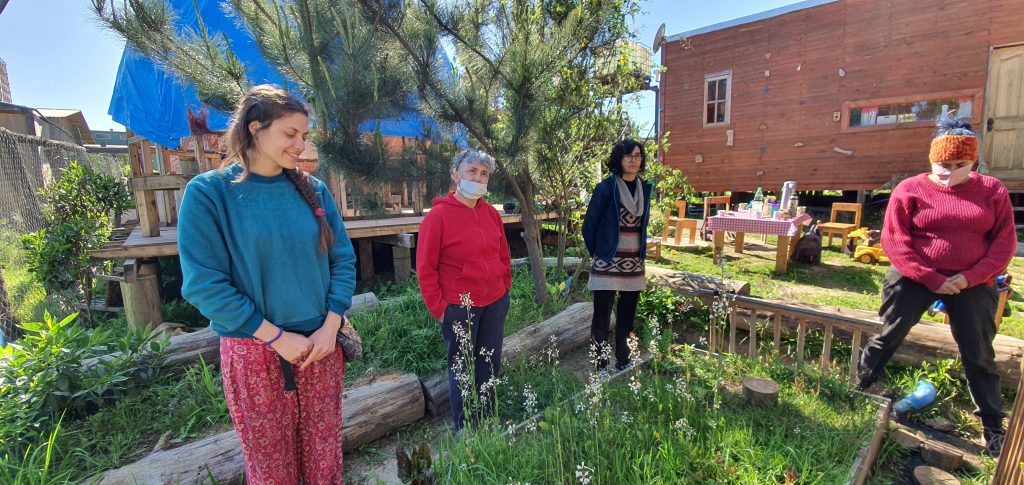
The immune system is the foundation of our health; and their responses constitute one of the most complex phenomena in the human body. In this sense, the influences of nature are indispensable agents for the proper functioning of the immune system and the entire human organism.
The human body is modeled in union with nature and works, since the appearance of our species, in interaction with it. Therefore, we are not only part of nature, but it is also part of us. The borders are diffuse, the human being does not end on the surface of the skin but extends in innumerable processes of contact and interaction with the environment.
There is an emerging scientific discipline called psycho-neuro-immunology, which also inspired us in the development of the Therapeutic Family Garden program, since its purpose is to investigate how the psyche influences the immune system and vice versa, in what way the immune system acts on the psyche. The nervous system is here the mediator between the body and the mind.
Mind, immune system and nature are three pillars that constitute a functional network that must be understood as belonging to the whole. Doctors and psychotherapists could apply this knowledge, by understanding the human being as part of the nature system, with which it has been linked from the origin of species, and also with nature as part of the human being, reciprocally forming a functional unit.
Ecopsychological approaches to work with the Therapeutic Family Garden (TFG)
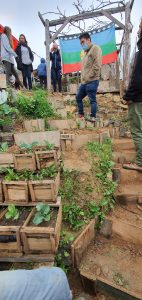
From an ecopsychological perspective, the garden is one of the healing spaces par excellence since it allows us to connect with the awareness of the cycles of time and life. It activate the sense of wonder and care for life. It makes us part of a larger cycle of coexistence with the entire web of life. It facilitates the exploration and connection with seasonal cycles as archetypes that allow interaction with psychological processes and the evolution of consciousness.
The family garden also facilitates the construction of a common purpose, both when it is carried out at the community and family level. It allows organization and collaborative work, it is a whole project that transforms daily life inside the home.
When we work networks of family gardens we facilitate the exchange of knowledge, experiences, seeds and food. And this sense begins to regenerate the relationship of families with the land and the community, with a sense of reciprocity and collaboration in their relationship with nature and all its elements.
The garden activates the sense of wonder and the care of nature. It facilitates the exploration and connection with seasonal cycles as archetypes that allow interaction with psychological processes and the evolution of consciousness.
The program
The city of Valparaíso, like many cities in Latin America, has presented a structural and persistent trend of registering high numbers of precariousness and unemployment. The last record delivered in 2019 by the National Institute of Statistics (INE), presents an unemployment rate of 10.7%. This unfavorable scenario becomes more complex with the numerous fires that affect the commune, which is already classified as a “critical commune” prone to these catastrophes, given the extent of use of forest land located mainly in the upper part of the city. city (CONAF, 2011).
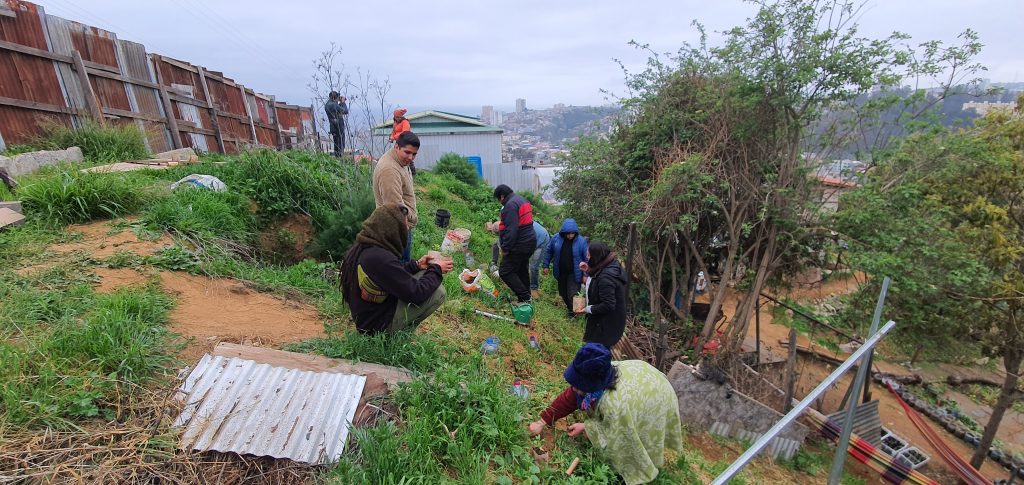
With the current contingency of the COVID-19 virus, it is necessary to maintain the existence of self-sustaining pathways that promote the acquisition of healthy food, so ensuring the functionality and public maintenance of the orchard would not only meet this objective, but would also encourage commitment community by having a collaborative support network that promotes the circular economy of the residents of the sector.
The program originated from the support that the CLANA Foundation had been working on in the field of Environmental Education and agroecology at the Escuela Bosque de Laguna Verde. The improvement of technologies was sought in the Bosque School as a demonstration of community garden, and the emphasis was placed on supporting materials for the implementation of family gardens, construction of a nursery for seeds and seedlings, preparation of technical sheets and educational material, cycle of regenerative talks, family support in the field, experiential workshops on Agroecology, Ecopsychology and Permaculture, and the generation of a virtual learning community with encounters and exchange of materials through social networks.
Due to the impossibility of holding face-to-face meetings due to the control measures against the pandemic, it was decided as a general strategy to promote family gardens at home, with the purpose of generating a network of families that could meet in person once the conditions of public health allowed them.
The proposed pedagogical model is transformative learning in action, based on experiential learning, dialogue of knowledge and transdisciplinarity.
In order to achieve the objectives, a participatory methodology was developed, promoting the collaboration of all those involved, fostering responsible participation in caring for the community. Users will be the protagonists, favoring their personal development and learning fundamental knowledge and values for their social inclusion, thus feeling part of the project at all times.
The co-constructed objectives were the following:
General Goal:
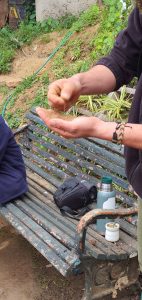
Strengthen the state of health, quality of life and community resilience in the participating families, through support in the design and implementation processes of Therapeutic Family Gardens, from the point of vew of agroecology and ecopsychology, in the context of social contingency and sanitary.
Specific goals:
– Re-link families and communities with the care and management of the garden as a source of eco-psychosocial nutrition.
– Integration of individuals, families and communities around training cycles in theoretical and practical agroecology for the raising of gardens and community spaces.
– Promote self-care and comprehensive health of their communities and territories in the participants.
– Strengthen in the participants their state of health, from the consciousness of being part and expression of nature.
– Support participating families in the transition towards a sustainable and regenerative lifestyle at the family and community level.
– To develop accompaniment and facilitation skills for Therapeutic Family Gardens.
– Strengthen in the participating families the bond with the territory, the sense of community and community resilience.
– Guide and support the reintegration processes of people with psychosocial and agroecological activities.
The process:
Work was done in phases determined by different goals that the users committed to meet during the process
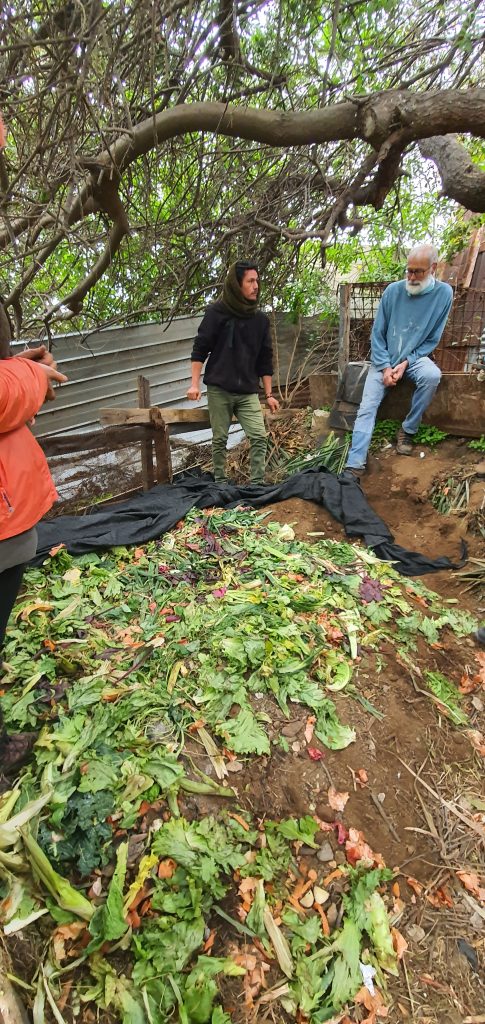
The defined phases were the following: Participatory diagnosis of the territory, training of monitors, family evaluation, life plans, orchard design, implementation, monitoring and evaluation.
A learning community was implemented that included the following training spaces: training sessions, thematic talks, virtual community and forums, family mentoring, experience exchange sessions, audiovisual resources and technical manuals.
The activities sought to enhance learning as a method for improving the close environment, the environment, the community, the acquisition of social values, cooperation and the transmission of intergenerational knowledge. With them, the aim is to promote the values of service learning with the implementation of urban gardens.
At the same time, we received the invitation from the NGO Good Neighbors to implement the program in the Ramaditas hill sector, whose residents suffered a fire on December 24, 2019, which affected a large part of the residents of the sector, whose registration was estimated at hundreds of victims. Currently, a large percentage of the families in the sector lack formal jobs which must resort to self-employment specifically in street commerce. This situation is already presented as a precarious scenario, whose reality has intensified even more given the recent pandemic that significantly affects the employment status of each family, which depends on the sales obtained in urban spaces, which since the implementation of the state of quarantine and social distancing protocols in the city, have not been able to rebound in a stability of their income.
Considering the above, we sought to support the communities of the hills affected by the fire (Cerro Rocuant, Cerro San Roque and Cerro Ramaditas), promoting the operation and maintenance of the community garden known as “La Jardinera”, built in the Cerro sector. Ramaditas by the Community Social Organization “Movimiento Ceniza”.
The program began by seeking to strengthen and support the operation and maintenance of the community garden created by the social organization “Ashes Movement”, using a participatory methodology to promote collaboration and responsible participation of the community.
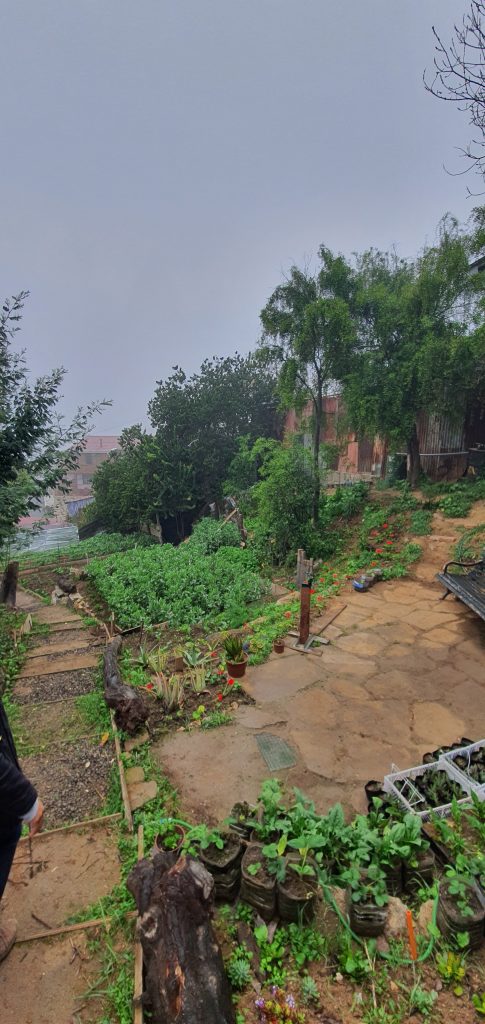
It was proposed to train the residents of the sector who participate in “the gardening” on agroecological and ecopsychological knowledge, linking them with the operation of a community garden under a therapeutic role for the participants. These trainings sought to train competent monitors for family accompaniment under educational work.
Consecutively, implements related to the planting, care and harvest of vegetables are delivered, with a special concern to raise awareness about the transition to a sustainable and regenerative lifestyle at the community level.
From this experience, we received the call from Good Neighbors Santiago, to share this program with a group of 20 Women from the Municipality of Cerro Navia, with whom face-to-face sessions and virtual modules were held, sharing methodologies to implement vertical gardens and gardens in their homes. vermicomposters as an introduction to working with HFT in an urban environment.
Results
Some of the social benefits generated by the program are the following:
- Creation of Community networks.
- Training and reinforcement of neighborhood leaders.
- Sense of belonging to the territory.
- Generation of sustainable habits.
- Reduction of food expenditure in the family budget of the participants.
- Reduction of garbage from the separation of waste.
- Obtaining composting from the separation of waste.
- Soil recovery, landfill and fire prevention.
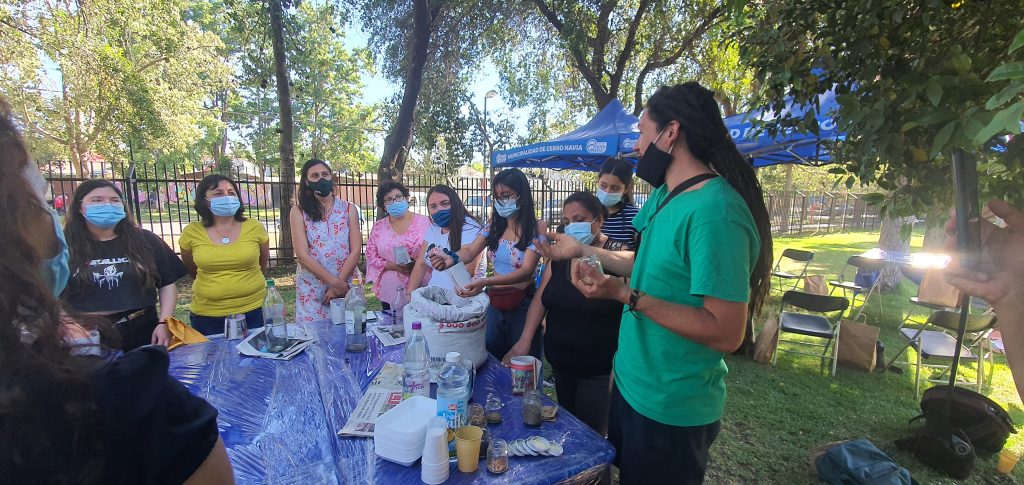
The Therapeutic Family Gardens model is in full development and has generated much expectation and community interest in the sectors in which it has been implemented.
In general terms, all the experiences carried out have personal work as a common thread, the garden being a mediator of healing processes and inner work at a personal, family and community level. We have promoted the exchange of knowledge and the realization of celebrations, as a way to promote collaboration, exchange of knowledge, seeds, experiences and food sovereignty.
In each of the sessions, both face-to-face and virtual, we have tried to incorporate rituals, body work, dances, meditations and reflections that help the participants to recognize various metaphors about their psychological processes when working with the garden.
Working with the archetypes of the elements of nature, such as fire, earth, air, water and energy, as well as the seasonal cycles that invite us to recognize in our life the influence and potential for self-exploration that they promote. each of the seasons, recognizing both internally and externally the processes that sustain life in our internal springs, summers, autumns and winters. In this sense, we incorporate the wheel of medicine as a very important device to understand the generation of life and well-being in our relationship with the earth.
We have also placed emphasis on the rescue of ancestral wisdoms, indigenous and shamanic cultures as a way of reconnecting our communities with the forgotten knowledge in Western culture that links us with the wisdom of nature as a master model.
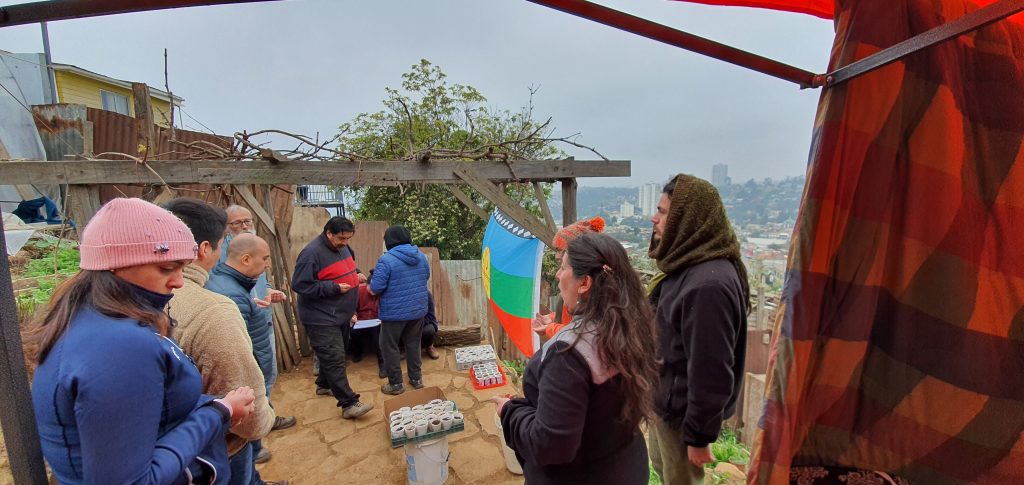
Bibliography
Arvay, Clemens G. 2016. El efecto de la biofilia. El poder curativo de árboles y plantas. Ediciones Urano, Barcelona.
Davis, S. 2008. La horticultura como terapia: principios y práctica. Binghamton: Prensa de productos alimenticios.
Ibarra, JT, J. Caviedes, A. Barreau y N. Pessa (Eds). 2019. Huertos familiares y comunitarios: cultivando la soberanía alimentaria. Ediciones Universidad Católica de Chile, Santiago, Chile. 228 págs.
Kausas, Susana; Nieves, Enrique. 2004. El jardín familiar. Desarrollo Ambiental, IMM. 2004.
Pereira, Claudio y Ríos Marian. 2019. Salud Ecológica y Bienestar Regenerativo. Libro académico en el marco de la Formación Internacional en Ecopsicología Aplicada: Formación en Ecotuning.






